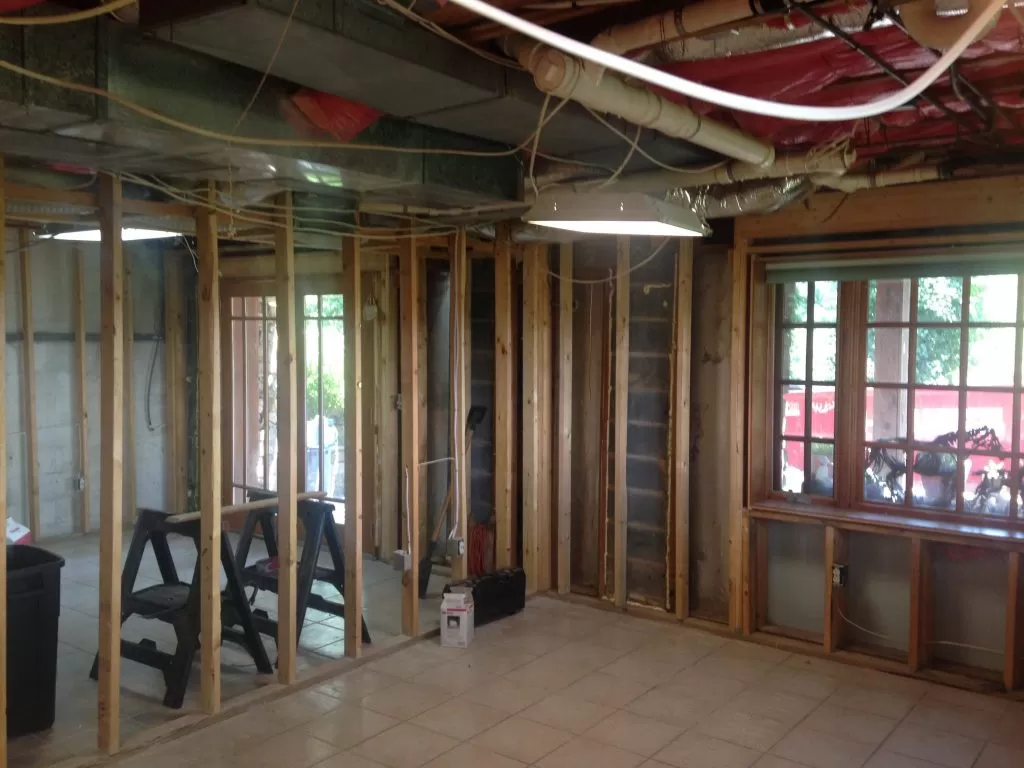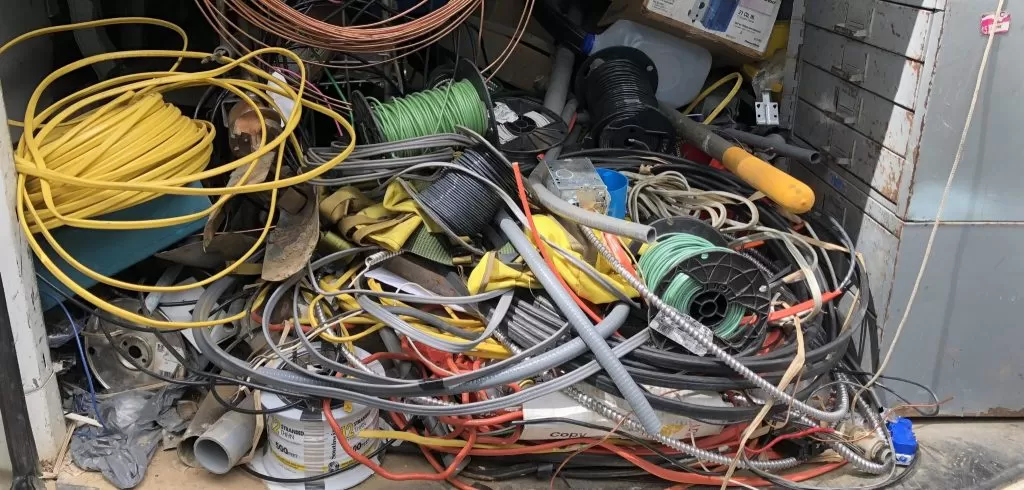Remodeling Project Part 2: Contractor Questions
by Bruce Johnson
As I mentioned in an earlier column, Leigh Ann and I have undertaken yet another remodeling project. We live in a split-level, 1972 ranch house built on a wooded knoll on a small farm outside of Asheville. The house originally had a two-car garage built inside the lower level, but later owners converted it into bedrooms. When they did, they installed an acoustical tile ceiling, which gave every subsequent plumber and electrician the excuse to hide any questionable work above it.

the lower level entryway and room with exposed ceiling
We lived with it for more than ten years before deciding it was finally time to do what had to be done: gut the entire lower level right down to the studs. That was the only way we could properly reroute the plumbing, trace mysterious electrical wires, raise the ceiling, upgrade the insulation, cover a red brick fireplace, rearrange the walls, and bring everything up to code.
Compared to building a new house, our project seemed too small to expect a contractor to mess with it, especially since our area is experiencing a major building boon right now. Contractors and sub-contractors have more work than they have qualified workers to handle, so we decided to assume the role of contractors ourselves.

The downstairs “Mud Room”
Since you might be wrestling with the same dilemma, let me share some insights into the position, starting with some key questions.
- Can one of you be there on key days, such as when the plumbers show up or when an inspector is scheduled to check their work? Even with a detailed set of plans, questions arise that you will want to decide yourself. And if an inspector arrives to a locked house, you will be charged for a return trip, when he or she gets around to it.
- Are you extremely well-organized? A contractor is also in charge of the schedule, making sure sub-contractors arrive in the proper order. You will need a notebook, a calendar, file folders, and a way to keep names, numbers, emails, bids, plans, and receipts available at any moment.

- Are you patient? Your finely-honed calendar is going to be turned upside down when your electrician leaves for an out-of-state funeral, your bathroom cabinets get back-ordered, or your plumber discovers the primary sewer line was improperly installed and has to be jack-hammered out of concrete, turning a two-day project into two weeks.
- Are you willing to get your hands dirty? If you are paying an electrician fifty dollars an hour, you don’t want him spending the last hour of the day sweeping the floor and carrying out the trash. While you have to make sure you are not in their way, being willing to help unload a truck, hold one end of a long pipe, or make a run to Lowe’s to get a missing piece will make the project run more smoothly.
- Despite the fact that your project is going to cost more and take longer than you had estimated, can you remain nice to your workers? If you treat them like second-class citizens, they will give you second-class work. Shake their hands, learn their names, ask about their families, and show your appreciation for their work. If they’re working on a Saturday, have donuts and coffee when they arrive. Occasionally pay for their lunch. And just as you would a waiter, when they do a great job for you, tip them.

lower level fireplace
They’ll remember you when you need them in the future.
Until next time,
“Long after you’ve forgotten how long it took and how much it cost, you’ll remember how great it looks.”
Bruce
